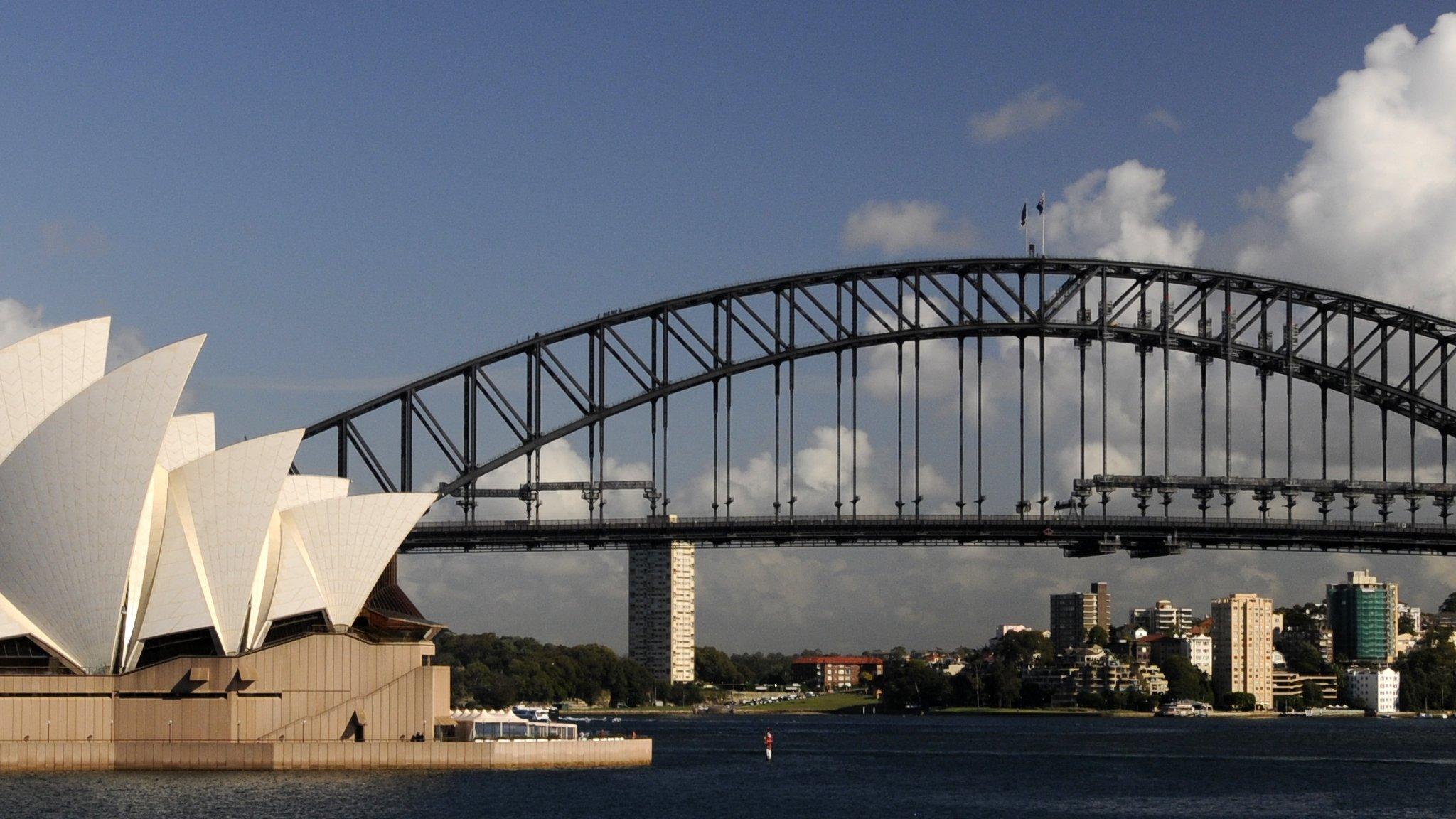How much power do UK farmers have over trade deals?
- Published
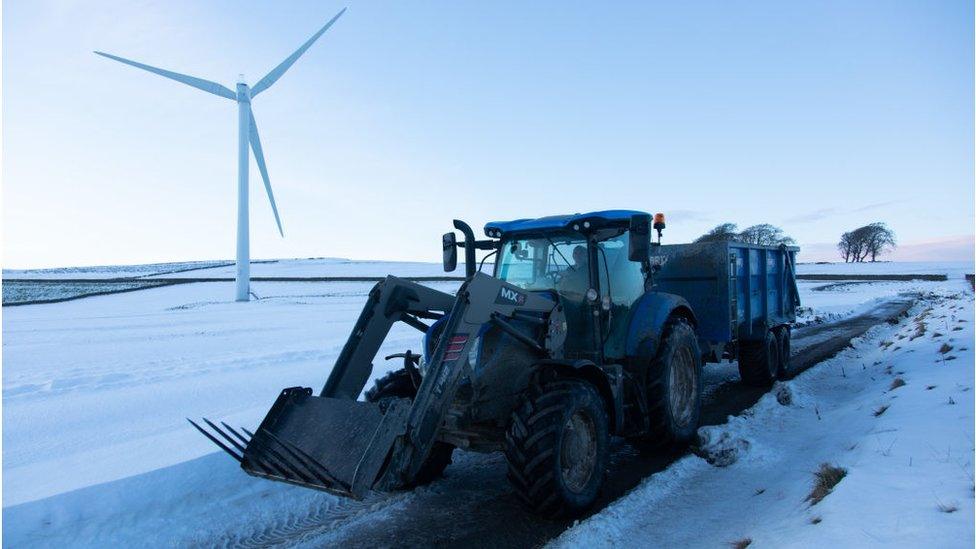
Don't mess with the farmers. That is the message the government has so far inadvertently sent out in regard to trade policy.
While attention is on the fate of the UK-Australia negotiations, it is worth considering what has happened to the US-UK deal.
It was once deemed the great prize of post-Brexit free trade. Progress under the Trump administration had been relatively swift.
Delaying tactic
But the UK farming lobby mounted an under-the-radar effort to change the minds of rural Conservative MPs, focussed on their local newspapers, about what they saw as the threats of US imports, adhering to different food standards.
The fundamental point here is that this effort worked. It delayed a quick deal.
And now under the Biden administration the US deal is in the mid-length grass, and possibly the long grass.
Confirmation of this came from the horse's mouth last week.
Stumbling block
The US Trade Representative Katherine Tai was asked by anglophile senator Rob Portman about whether a deal could be struck quickly.
"In my review of the progress made, very critical issue areas are still open, so there's still quite a road to go," she said.
"From my perspective it is important to think through some of the objectives, now some of the issues of the UK's exit from the EU are settled.
"I will note that I hear a lot of concerns from members of Congress around the situation in Northern Ireland. That is something we are keeping an eye on in terms of steps forward with the UK on an agreement."
The US is still reviewing what has already been negotiated, and she did not suggest an effort to ask Congress to extend her ability to fast-track negotiations to get the UK deal done.
Those powers are just about to expire. A careful eye on Northern Ireland is also being kept.
The Queen's Speech perhaps tacitly acknowledged this reality, noting that ministers "will deepen trade ties in the Gulf, Africa and the Indo-Pacific", with no mention of the US.
What's more, no mention of trade negotiations was made after two recent virtual summits between Ms Tai and UK Trade Secretary Liz Truss, nor in recent bilateral calls between Prime Minister Boris Johnson and President Joe Biden.
Efforts had been focussed instead on mini-deals to settle the longstanding Airbus dispute.
And now the US backing for lifting patent protections on vaccines is a new priority.
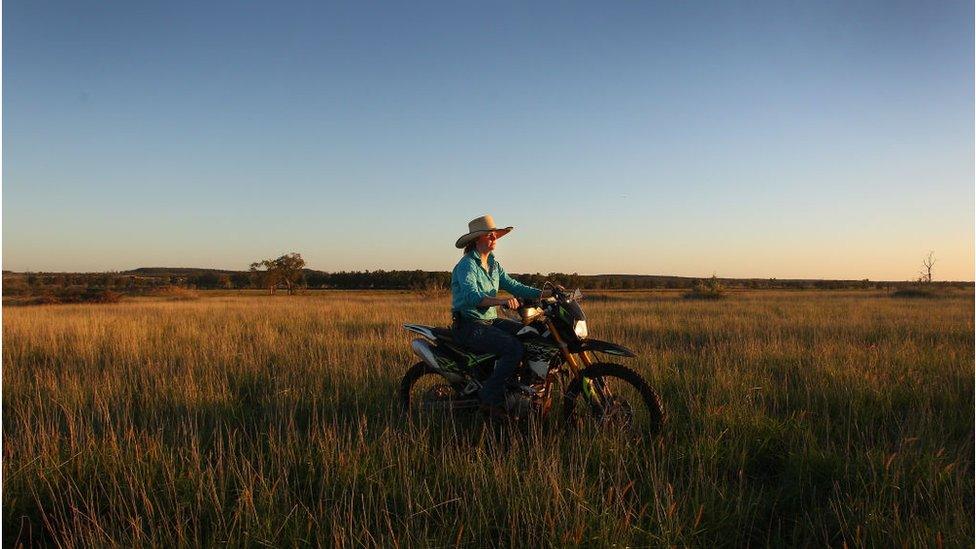
Antipodean interest
So Australia, New Zealand and then the Trans Pacific Partnership deal are now the priorities.
For these countries, it was always going to be the case that lower tariffs on their industrialised exports of food would be top of their big asks.
They have already played hardball, even over the way the UK tried to disentangle its trade access commitments at the World Trade Organisation after Brexit.
The UK is also more broadly sympathetic to a wider effort to lower farm subsidies globally, to allow for fairer trade and cheaper food.
Trade negotiations create winners and losers in sectors and regions, even as they normally increase the size of the economic pie.
That is basic economics from the time of David Ricardo.
And the structural political challenge here is that the beneficiaries are unlikely to protest about not gaining, for example, new forms of digital market access down under.
On the other hand, UK hill farmers and croft farmers, some of whom are already reeling from extra trade barriers exporting to European markets, now face competition from industrialised global meat exports.
The immediate losers are more visible, the losses more tangible, than the future winners.
Put simply, they are more likely to dump their goods outside the Department for Environment, Food and Rural Affairs.
The flipside of that is that consumers would get more choice, and potentially lower prices if we struck a deal with Australia that accepted lower tariffs on their agricultural goods.
Indeed, New Zealand itself has long been heralded as the example of a place that scrapped subsidies and trade barriers, and as a result hugely improved competitiveness, exports and jobs.
Sceptical farmers have been told that the Australia deal is a gateway to slashing tariffs for their exports to most of the rest of Asia as part of the trans-Pacific deal.
So this becomes a matter of politics. There is a significant devolution aspect to this too, with Wales and Scotland run by different parties, and with a limited say on the trade negotiations of the UK government.
Detractors will argue that deals such as this risk a fundamental change to a way of life in livestock farming. That UK hill farms can never compete with massive Antipodean ranches.
And while Australian trade with the UK is relatively small, any precedent set here on market access will be cited in all the subsequent deals too.
This will be the first UK deal that is not largely inherited from our EU membership.
In some of those rollover deals, such as with Japan, much of the UK's preferential access to those markets arises only if the EU doesn't use its quota.
The Australia deal could reset the course. Indeed it will determine if the influence of farmers in delaying the US deal is to be a permanent feature.
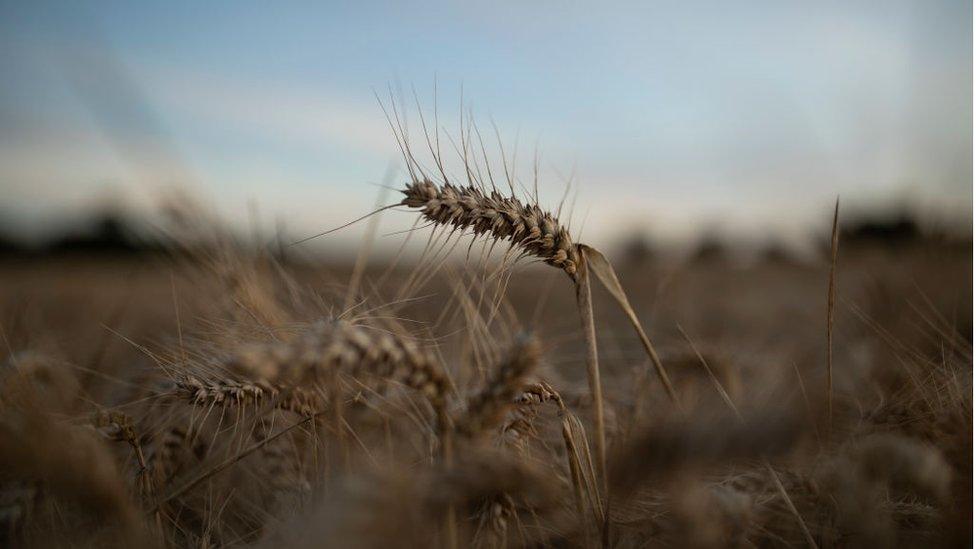
Leverage loss?
The real lesson from Australia is in negotiating against a backdrop of promises that a deal will definitely be done.
The perception among some former Australian negotiators is that former PM John Howard lost considerable leverage in negotiations with the US and Thailand.
Australia's sugar and car industry lost out in those deals - in fact Australia does not produce or export passenger cars any more.
Now, from Australia's vantage point, the UK has to do a deal, any deal, and so can be asked to throw open its agricultural markets.
Australia calculates it can walk away more easily than the UK so it has set a high price.
Compromises are possible. The question is what sort of safeguards for British farmers, for example a review after five years, phased-in access, would be consistent with the Australians feeling the need to sign a deal?
Brexit dividend
One argument in Cabinet is indeed that the whole point of a relatively clean break with the EU was to sign deals such as this.
And Australia should be relatively straightforward. To be precise, what Brexit did was to enable the sovereignty and decision-making in this area to be made at a UK level.
But the fundamental decisions on difficult trade-offs still need to be made.
Related topics
- Published18 May 2021
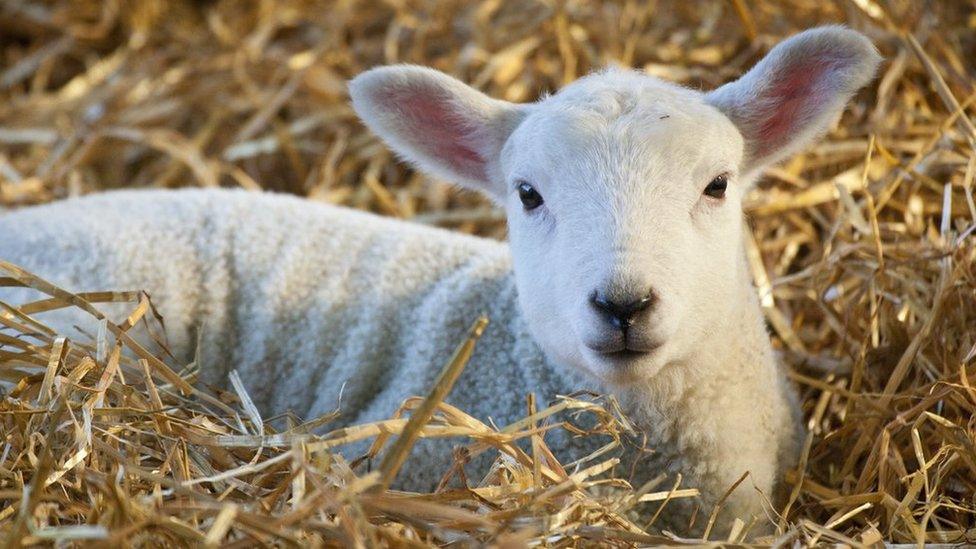
- Published23 April 2021
